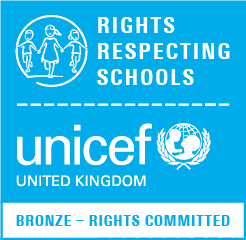Vocational Courses
“Far and away the best prize that life offers is the chance to work hard at work worth doing.”
Theodore Roosevelt

Vocational Curriculum Overview
Year 12 Children's Play, Learning & Development
Year 13 Children's Play, Learning & Development
Year 12 Health and Social Care
Year 13 Health and Social Care
BTEC offers professional qualifications for anyone taking their first step into the world of work, progressing through their careers or planning to study further in higher education.
At Bordesley Green Girls' School and Sixth Form, the Vocational Department equips students in taking their first steps towards a new career need the right blend of technical and academic skills in order to become the highly skilled, work-ready individuals for employers and universities look for.
BTECs are vocational qualifications designed to help our students succeed. Students will take part in work-related learning, giving learners an edge and opening the door to higher education or employment in the early year’s sector and health and social care sector. Throughout their chosen course students are given the opportunity to showcase their skills and apply their knowledge in an appropriate, work-related context, and provide evidence of what they can do when they apply to enter higher education or employment.
In Early Years students will undertake 750 hours of work experience in a variety of childcare setting working with children aged birth to 7 years 11 months, allowing students to demonstrate achievement suitable for progression to a wide range of child-focused careers or to higher education in an early years or related field and will be recognised as having EYE status in early years settings.
The content of this qualification has been developed in consultation with employers and professional bodies to confirm that the content is appropriate for those interested in working in the sector. Learners taking this qualification will study eleven mandatory units which cover the following topics; children’s development, keeping children safe, observation, assessment and planning, play and learning, reflective practice, research, supporting children’s early learning, the Early Years Foundation Stage (EYFS) and working with parents and others.
In Health & Social Care students will develop their knowledge, understanding and skills that underpin study of the health and social care sector, this qualification gives learners experience of the breadth and depth that will prepare them for further study in the sector. This includes the opportunity for learners to choose a health studies pathway with options reflecting the progression opportunities in health care. Students will develop their knowledge in units such as Anatomy and Physiology for Health and Social Care, Human Lifespan Development, Working in Health and Social Care, Meeting Individual Care And Support Needs, Principles of Safe Practice in Health and Social Care, Enquiries into Current Research in Health and Social Care, Promoting Public Health and undertake work experience in a variety of Health and Social Care placements
The aim of WorkSkills is to help you improve your knowledge, understanding and skills that are necessary to gain and retain employment. Throughout the course you will be given numerous opportunities to develop a wide range of employability attributes, which include general communication skills, applied numeracy, team working, problem solving and confidence building. The programme combines studies in literacy, numeracy with more practical skills and experiences to develop students’ knowledge and experience using the vocational areas of customer service, retail and teamwork in both simulated and real working environments.
All the Level 3 BTEC courses at B.G.G.S provide opportunities during the teaching and learning phase to give learners practice in developing employability skills, these skill include: cognitive and problem-solving skills, use critical thinking, approach non-routine, problems applying expert and creative solutions, use systems and technology, intrapersonal skills: communicating, working collaboratively, negotiating and influencing, self-presentation interpersonal skills: self-management, adaptability and resilience, self-monitoring an development.
There are also specific requirements in some units for assessment of these skills where relevant. For example, where learners are required to undertake real or simulated activities. Many of the mandatory and specified optional units encourage learners to develop the specific practical skills that employers are looking for.
[Top of page]
How we assess what your child has been taught:
|
How will classwork be marked/ monitored/ graded/ self-assessed? |
KS4 |
Once every 3 weeks, books will be marked, dry marks will be assessed and progress will be recorded by teachers, work will be annotated. |
|
KS5 |
Once every 3 weeks, dry marks will be assessed and progress will be recorded by teachers, work will be annotated. |
|
|
What classwork will be marked? |
KS4 |
Teachers will comment using Red pen. Praise stamps used. Teachers will annotate criteria achieved. |
|
KS5 |
Teachers will annotate criteria achieved using black pens. |
|
|
How will students ‘reflect’ on marking/ feedback? |
KS3/KS4/KS5 |
Complete DIRT tasks and respond to feedback, KS5 will reflect in green pen on the assessment record sheets |
|
KS4 |
Dry marks and Final Submissions will be marked, work will be annotated according to BTEC Assessment guidelines |
|
|
KS5 |
Dry marks and Final Submissions will be marked work will be annotated according to BTEC Assessment guidelines |
|
|
What are the formal Assessments? When are they marked? |
KS4- final submission of coursework will be marked once submitted on deadline, usually once every half term, work will be annotated with criteria achieved and recorded on Assessor Record sheet and Final Grade sheet KS5- final submission of coursework will be marked once submitted on deadline, usually once every half term, work will be annotated with criteria achieved and recorded on Assessor Record sheet and Final Grade sheet Mock exams are arranged in the first term and grades are recorded in the Quality Folder and SIMS |
|
Updated November 2022














